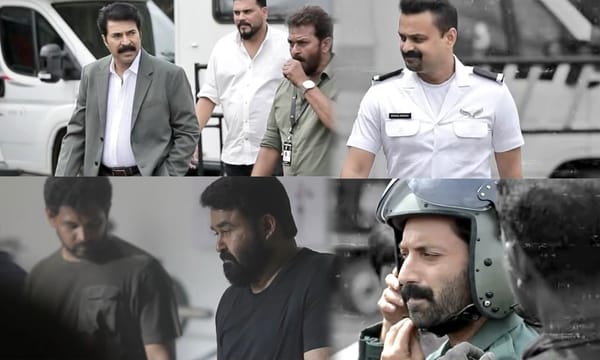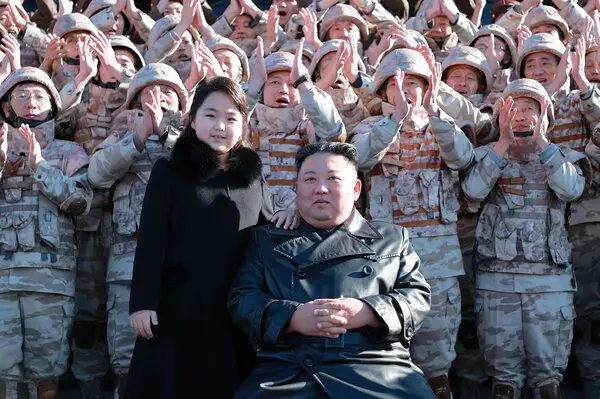Knowing our Heritage: Dr N Gopalakrishnan
In his talks spread over two days he gave an insight into topics such as the cultural and scientific heritage of Arsha Bharatham (India of the Rishis or saints). He expounded the principles of Sanatana Dharma to live a successful and meaningful life, the scientific logic behind some of our customs a

In his talks spread over two days he gave an insight into topics such as the cultural and scientific heritage of Arsha Bharatham (India of the Rishis or saints). He expounded the principles of Sanatana Dharma to live a successful and meaningful life, the scientific logic behind some of our customs and traditions as well the need to change some to suit the current times. He briefly touched on the Hindu ideas on cosmology and time, many of which are now proved to be consistent with current findings of modern science and astronomy.
Dr N. Gopalakrishnan, champion and pioneer of the Scientific and Cultural Heritage of India was in town recently for a series of Talks organized by the Singapore Malayalee Hindu Samajam held in conjunction with the 48th year of Makaravilakku Celebrations at Sri Vairavimada Kaliamman Temple.
Some Highlights
He said that, life should be purposeful and useful, meaningful and fruitful. One should strive not only to be good but to be great. The five words of Sanatana Dharma explains about mind- thought- action - result - and reward (Manas- Chintha-Karma - Karma bhalam - and Karma pratibhalam). Good actions and thoughts will ensue in good results, good reward which in turn makes the weak mind strong and to move from being negative to positive.
Last century this date we were not here and next century this date we will not be here, so between the date of birth (DOB) and date of death (DOD) how long we live in this world is unimportant but how we live is important. This is the ultimate aim of Sanatana Dharma. Hence the changes we bring internally in us are more important than the external changes.
Many civilizations have come and gone and India was invaded and ruled by foreigners for thousands of years, but because of India’s strong cultural and traditional binding India stood intact. India’s culture focussed on internal development, of the individual self. He mentioned that mind is from where the change should start and the body should only follow.
The ultimate goal (of Sanatana Dharma) is to make heaven on earth and not to make earth a hell. There are five levels which can help you achieve this. Listening to stories and myths (Puranas), from experiences and stories (Mahabharata) from experiences (Ramayana), Vedas and the Upanishads. Upanishads deal with the ultimate truth of life; the impermanence of life.
He said we should pray for Icha Shakthi (strengthening our mind and will) to Lakshmi Devi; for Jnana Shakthi (the power of knowledge and intelligence) to Saraswathi Devi and for Kriya Shakthi (the power of action) to Parvathy Devi. And G-O-D the power of Generation, Observation and Destruction is basically within us. In the Temples, the image of God is created in the human form as then it becomes easy for us to understand the divine power in human form.
He mentioned about the relevance and scientific reasoning behind many Acharas (customs) we follow; like washing the legs before entering the house after travelling outside which cools the brain, the right direction to keep the head for a good sleep and so on.
And the necessity of keeping clean (Shudhi) of Sharira (body), Manas (mind), Vak (words), Aahara (food) and Karma (deeds).
Dr. N Gopalakrishnan is a scientist and Hon. Director of Indian Institute of Scientific Heritage, having M.Sc. (Pharm. Chem); M.Sc. (Appl. Chem); M.A., (Soc.); Ph.D. (Biochem); D.Litt. (Science in Sanskrit) and an MBA.
Widely travelled giving lectures, he has 28 years of research experience, 50 scientific research papers in national and international scientific journals, 7 patents, 6 awards for scientific research, 9 science popularization awards from India and abroad, two fellowships, 60 books, (MP3) 200CDs, 50 VCDs, more than 6000 lectures and has 200 hrs of speeches in Television media in India and abroad, to his credit.
The Talks were held on 3rd and 4th of January 2015 with two sessions at Sri Vairavimada Kaliamman Temple, Toa Payoh and one session at Sri Sivan Temple at Geylang East Ave 2.




